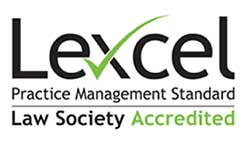HMRC is set to pursue up to £30 million pounds worth of unpaid stamp duty following a court victory involving the buyers of two £2 million properties who used a scheme, which has now been declared unlawful, to avoid paying more than £160,000 in tax. A complex arrangement had been set up on the buyers’ behalf in the hope of enabling them to avoid paying tax on the houses, with a number of companies created solely to make the purchases. After these were completed, the buyers then immediately received shares in the companies equal to the values of the properties. The buyers had sought to challenge demands made by HMRC for payment of the outstanding stamp duty, however these appeals were recently thrown out by a tax tribunal.
Following the decision, officials from HMRC stated that there are currently over 200 enquiries open into schemes that attempt to enable land and property buyers to avoid paying stamp duty. Amounting to over £30 million worth of unpaid tax, HMRC is now more confident than ever that it can successfully recover this money. HMRC compliance director Penny Ciniewicz said:
“The court has made it clear that these schemes don’t work. The promoters deliberately created a complex maze so people could avoid paying the tax due. Now we have defeated this scheme, those involved will have to pay what they owe.”
In recent years the courts have dealt with other stamp duty avoidance cases in a similar way, including in the case of a housebuilder who was ordered to pay HMRC £1.3 million after using a stamp duty avoidance scheme as part of the purchase of £32 million worth of land in Kent in 2017. In addition to having to pay outstanding tax bills, those who use tax avoidance schemes of this type may also have to pay penalties, fines and any accrued interest.
HMRC and Tax Fraud
HMRC will undertake a tax investigation to examine whether an individual or business has failed to pay their required level of tax. Unlike other bodies who examine instances where businesses or individuals are suspected of acting fraudulently, HMRC has criminal investigation powers comparable to other law enforcement agencies. These include the powers to apply for production orders, which require information to be handed over to aid investigations, powers to apply for arrest warrants, to make arrests, and to conduct searches of individuals and premises following an arrest. Should an investigation lead to court proceedings, prosecutions will be conducted by specially trained lawyers with experience in dealing with these complex cases.
How can Wilford Smith help if I am under investigation for tax fraud?
The experienced fraud solicitors at Wilford Smith specialise in all types of tax fraud, including VAT fraud. Our expert fraud lawyers can provide representation when attending meetings with HMRC, in court proceedings and can offer guidance on managing risks to reputation resulting from investigations or prosecutions. We have an enviable reputation in defending allegations of fraud and corporate crime, advising a range of clients on issues such as bribery and corruption, insider trading, tax investigations and confiscation proceedings carried out under the Proceeds of Crime Act.
Contact our Tax Fraud Solicitors
We advise clients based in London, Sheffield and Manchester and across England and Wales. Contact us today on 0808 168 5813 to find out how we can help you.



